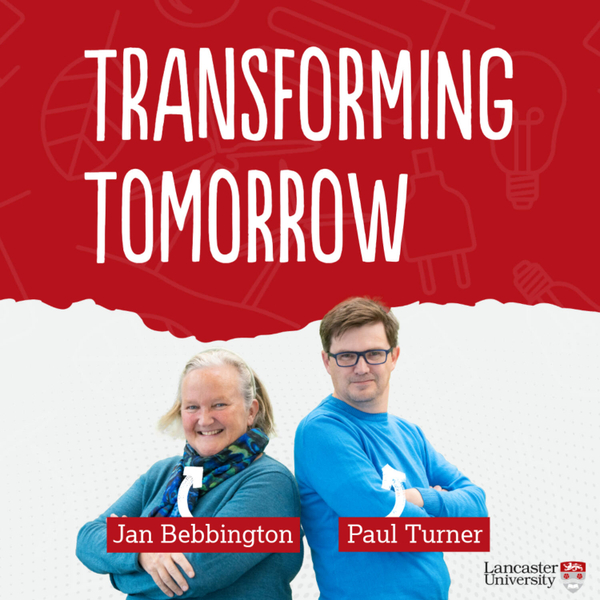
What is servitization? Could it be the future for more businesses? How does it link to productivity and sustainability? And why is it spelt with a z? We answer at least three of these questions as we explore an area that is relevant to giant global corporations and small businesses alike.
What if, instead of a crane, you charge by the number of lifts it carries out; if instead of selling a physical tyre, you provide a certain amount of miles; if a company offers you so many air miles from an engine? These are all examples of servitization that already exist – it even applies in industrial food packaging.
Lancaster University Management School’s Professor Andreas Schroeder is a servitization expert, working with numerous firms on how they can change their operations to move to a servitization model to benefit their operations, and others on how they can use their data in new ways.
He tells us about the key differences between products and services; how servitization blurs the boundaries on relationships with customers and suppliers – are they now more like partners?; the differences between rental agreements and servitization; and why it can be easier for smaller companies to pivot their operations to this model.
Discover some of servitization’s success stories, how it can affect a company’s carbon footprint and align profit with sustainability, how it encourages an operation to design and create products for service, repair and circularity, and how data collection, analysis and optimisation can identify where value opportunities lie and improve practical operations.
Paul lets his anger at American spelling take over; Jan discovers a new friend who can put on a Kiwi accent; and everyone becomes fascinated by tyres, hydrogen-powered diggers and aeroplane engines.
Find out more about Andreas and his work here: https://www.lancaster.ac.uk/lums/people/andreas-schroeder
Transforming Tomorrow
Sustainability is a key consideration for any contemporary business, from biodiversity to modern slavery, seabeds to factory floors. On Transforming Tomorrow, we’ll guide you through the complex, ever-changing and often exciting (yes, really!!) world of sustainability in business. Alongside members of the Pentland Centre, academic experts, and business leaders, we cover the theory and practice of mainstreaming social and environmental sustainability into purposeful business strategy and performance.
Whether you are leading change in your business, or just want to know more about how asteroid mining may influence the future of sustainability, Transforming Tomorrow is the show for you.
Taking you through it all are your hosts, Jan and Paul, who bring insight, perspective, and not a little amount of disagreement, to all the subjects.
Join us every Monday to uncover new insights and become a little more inspired that you can make a difference in sustainability.
You can find transcripts for most episodes at: https://www.lancaster.ac.uk/pentland/resources-for-education-and-practice/transforming-tomorrow-podcast/transcripts/
Send your questions on any of the issues we discuss in Transforming Tomorrow to [email protected] or fill in our feedback form here: https://forms.office.com/e/7Bw4rDiRDt
Find out more about the Pentland Centre and its work here: https://www.lancaster.ac.uk/pentland/
https://doc.your-brochure-online.co.uk/Lancaster-University_Transforming-Tomorrow/
Meet the Hosts
Professor Jan Bebbington is the Director of the Pentland Centre for Sustainability in Business at Lancaster University. Jan is an expert on accounting, benchmarking (to her co-host’s annoyance), and how business and sustainability intersect.
Jan loves nature and wants to protect it – and hopes she can change the world (ideally for the better). She is also motivated to address inequality wherever it is found and especially to eliminate forced, bonded or child labour. Transforming Tomorrow is one small step on that quest.
Paul Turner is a former sports journalist who now works promoting the research activities in Lancaster University Management School – a poacher turned gamekeeper as his former colleagues would have it.
Paul has always been interested in nature and the natural environment – it comes from growing up in Cumbria – and has been a vocal proponent of the work of the Pentland Centre since joining Lancaster University. He does not like rankings and benchmarking, and is not afraid to say so.